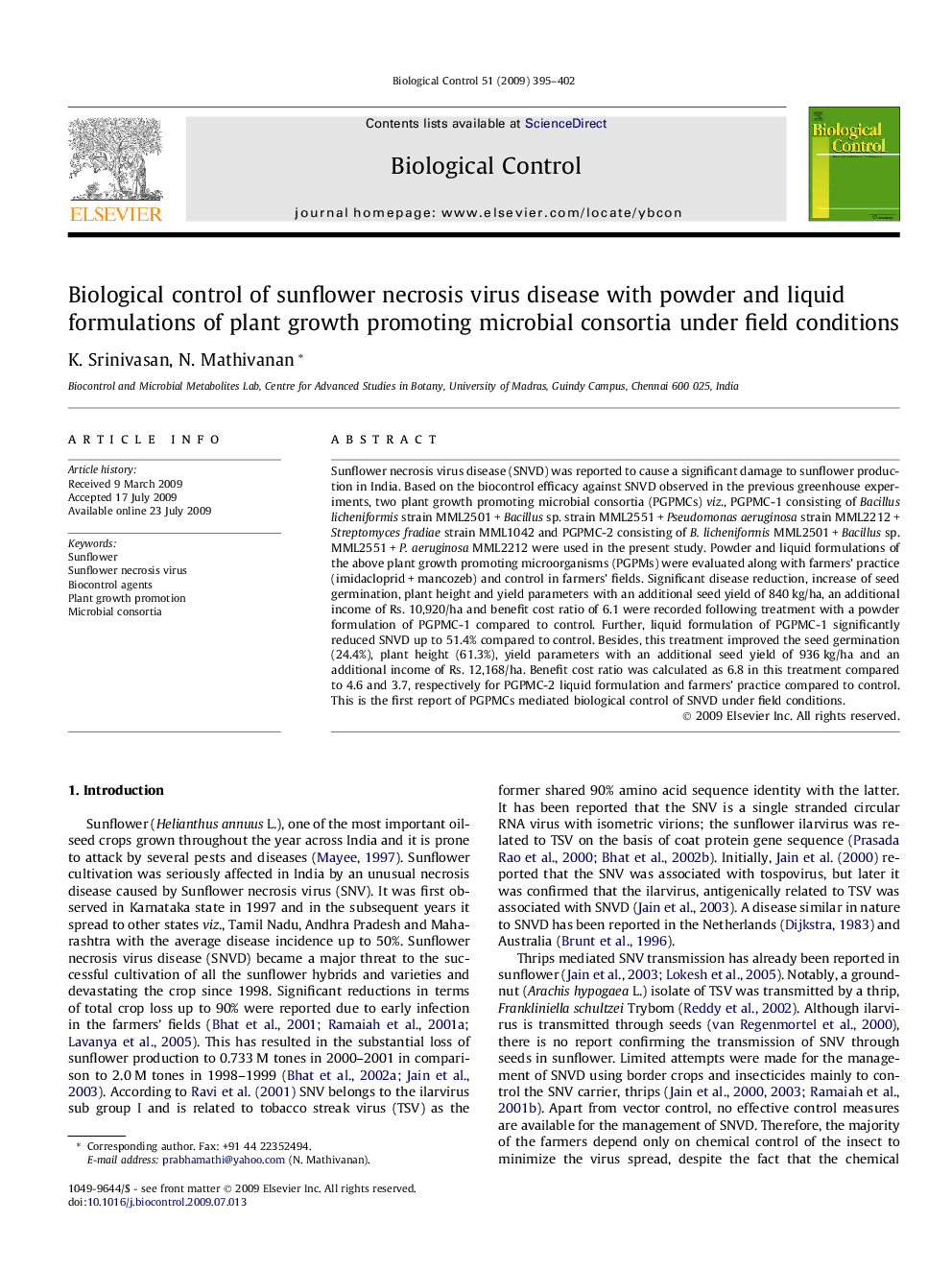| Article ID | Journal | Published Year | Pages | File Type |
|---|---|---|---|---|
| 4504541 | Biological Control | 2009 | 8 Pages |
Sunflower necrosis virus disease (SNVD) was reported to cause a significant damage to sunflower production in India. Based on the biocontrol efficacy against SNVD observed in the previous greenhouse experiments, two plant growth promoting microbial consortia (PGPMCs) viz., PGPMC-1 consisting of Bacillus licheniformis strain MML2501 + Bacillus sp. strain MML2551 + Pseudomonas aeruginosa strain MML2212 + Streptomyces fradiae strain MML1042 and PGPMC-2 consisting of B. licheniformis MML2501 + Bacillus sp. MML2551 + P. aeruginosa MML2212 were used in the present study. Powder and liquid formulations of the above plant growth promoting microorganisms (PGPMs) were evaluated along with farmers’ practice (imidacloprid + mancozeb) and control in farmers’ fields. Significant disease reduction, increase of seed germination, plant height and yield parameters with an additional seed yield of 840 kg/ha, an additional income of Rs. 10,920/ha and benefit cost ratio of 6.1 were recorded following treatment with a powder formulation of PGPMC-1 compared to control. Further, liquid formulation of PGPMC-1 significantly reduced SNVD up to 51.4% compared to control. Besides, this treatment improved the seed germination (24.4%), plant height (61.3%), yield parameters with an additional seed yield of 936 kg/ha and an additional income of Rs. 12,168/ha. Benefit cost ratio was calculated as 6.8 in this treatment compared to 4.6 and 3.7, respectively for PGPMC-2 liquid formulation and farmers’ practice compared to control. This is the first report of PGPMCs mediated biological control of SNVD under field conditions.
